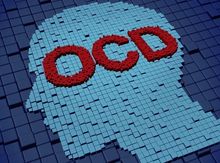
Glutamate is the most abundant neurotransmitter in our brain and central nervous system (CNS). It is classified as an excitatory neurotransmitter believed to be important for learning and memory.
Neurotransmitters are required for the signalling across cells and an excitatory neurotransmitter is one that increases the likelihood that the neuron it acts upon will have an action potential (fire ups). Interestingly, glutamate is also a precursor for another neurotransmitter called GABA (gamma-aminobutyric acid), which is a major inhibitory neurotransmitter in the CNS. Inhibitory neurotransmitters decrease the likelihood that a neuron will fire.
While glutamate is essential for neuronal functioning, too much and too little can be a problem. Excess glutamate can be neurotoxic and disturbances in this neurotransmitter have been implicated in many diseases such as epilepsy, traumatic brain injury, amyotrophic lateral sclerosis and Huntington’s chorea. Disturbances in glutamate activity have also been found in many mental health disorders such as depression, schizophrenia, bipolar disorder, and anxiety disorders. Ketamine, a medication that influences glutamate activity in the brain (an N-methyl-d-aspartate antagonist), has been shown to have rapid antidepressant efficacy for treatment-resistant depression [1].
Glutamate is an amino acid contained in many foods. Monosodium glutamate (MSG) is a common food additive/flavour enhancer which is derived from glutamate. While it is claimed by many health authorities that it is safe, this conclusion is very controversial. Glutamate is also found naturally in many foods including hard cheeses like parmesan; tomato concentrates and sauces; stock cubes and concentrates; sauces such as soy, fish, and oyster; spreads such as Vegemite®; and foods containing added Hydrolysed Vegetable Protein.
In a very interesting case-control study [2], adherence to a low-glutamate diet had a significant effect on obsessive-compulsive disorder (OCD) in an adult male. This 50-year male suffered from OCD from age 11, fibromyalgia and irritable bowel syndrome (IBS). Despite trialling numerous medications, his OCD persisted for over 30 years.
This person participated in a clinical trial for IBS where they reduced glutamate in the diet for one month. After this period, all participants were randomised to receive MSG for three mornings of 1 week and placebo for 3 days of the other week. Participants were blinded, which means they did not know which week they were taking MSG. At the end of the 1-month elimination diet, the person reported complete remission of his OCD symptoms, IBS and fibromyalgia. However, during the 2 challenge weeks, his symptoms returned within 1 day when challenged with MSG but not when given the placebo.
While this paper only presents the results of a single case study, the results are exciting and further investigation is certainly warranted. In this example, it seems that the removal/reduction of glutamate in the diet significantly treated OCD in a person with previously untreatable OCD. As glutamate disturbances are implicated in many psychiatric disorders, normalising activity through dietary changes presents as a possible treatment option.
Session expired
Please log in again. The login page will open in a new tab. After logging in you can close it and return to this page.